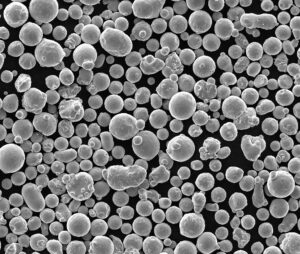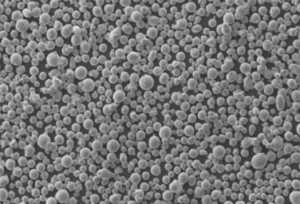Overview of Forging Grade Material
Forging grade materials are the backbone of industries where durability, strength, and precision are paramount. These materials, engineered to withstand intense pressure and high temperatures, are vital in manufacturing components that must maintain integrity under stress, such as automotive parts, aerospace components, and heavy machinery. Forging involves shaping metal through compressive forces, often by hammering or pressing, making it crucial to select the right material to ensure the final product’s strength and performance.
The selection of forging grade materials involves considering their composition, mechanical properties, and specific application requirements. With advances in metallurgy, numerous metal powders are now available for forging, each with unique properties suited to different industrial needs.

Types of Forging Grade Material
Forging grade materials are categorized based on their composition and properties. The most commonly used materials include carbon steels, alloy steels, stainless steels, titanium alloys, and aluminum alloys. Each of these categories has specific grades that offer distinct characteristics, such as hardness, toughness, and resistance to wear and corrosion.
| Material Type | Common Grades | Composition | Key Properties | Applications |
|---|---|---|---|---|
| Carbon Steel | AISI 1045, AISI 1060 | Iron, Carbon, Manganese | High strength, moderate toughness, good machinability | Automotive parts, bolts, nuts, gears |
| Alloy Steel | AISI 4140, AISI 4340 | Iron, Carbon, Chromium, Molybdenum | High strength, excellent hardenability, wear-resistant | Crankshafts, gears, axles |
| Stainless Steel | 304L, 316L | Iron, Chromium, Nickel, Molybdenum | Corrosion resistance, good ductility, high strength | Medical devices, food processing equipment |
| Titanium Alloys | Ti-6Al-4V, Ti-10V-2Fe-3Al | Titanium, Aluminum, Vanadium | High strength-to-weight ratio, corrosion resistance | Aerospace components, medical implants |
| Aluminum Alloys | 2024, 6061 | Aluminum, Copper, Magnesium, Silicon | Lightweight, good corrosion resistance, high strength | Aircraft structures, marine equipment |
Composition of Forging Grade Material
The composition of forging grade materials varies significantly depending on the type of metal and the desired properties of the final product. Below is a detailed breakdown of the composition of some of the most commonly used forging materials.
| Material | Main Elements | Additional Elements | Composition Details |
|---|---|---|---|
| Carbon Steel (AISI 1045) | Iron (98.51-98.98%), Carbon (0.42-0.50%) | Manganese (0.60-0.90%), Phosphorus, Sulfur | Provides a good balance between strength, toughness, and machinability. |
| Alloy Steel (AISI 4140) | Iron (96.79-97.95%), Carbon (0.38-0.43%) | Chromium (0.80-1.10%), Molybdenum (0.15-0.25%) | Known for its high hardenability and strength. |
| Stainless Steel (304L) | Iron (66.0-70.0%), Chromium (18.0-20.0%) | Nickel (8.0-12.0%), Molybdenum (<0.75%) | Offers excellent corrosion resistance and good ductility. |
| Titanium Alloy (Ti-6Al-4V) | Titanium (88.0-90.0%), Aluminum (5.5-6.75%) | Vanadium (3.5-4.5%) | Highly durable with a high strength-to-weight ratio, used extensively in aerospace applications. |
| Aluminum Alloy (2024) | Aluminum (90.7-94.7%), Copper (3.8-4.9%) | Manganese (0.3-0.9%), Magnesium (1.2-1.8%) | Lightweight with good machinability, commonly used in aerospace structures. |
Characteristics of Forging Grade Material
The characteristics of forging grade materials depend heavily on their composition and treatment. Some common characteristics include:
- Strength: Forging grade materials are typically very strong, making them ideal for applications that require high structural integrity.
- Toughness: These materials can absorb significant energy before fracturing, which is crucial for components subjected to high impact.
- Ductility: Many forging grade materials are ductile, meaning they can be deformed without breaking, which is important during the forging process.
- Corrosion Resistance: Particularly in stainless steels and some titanium alloys, corrosion resistance is a key characteristic, especially in harsh environments.
- Wear Resistance: Certain alloy steels are designed to be highly wear-resistant, extending the lifespan of parts like gears and bearings.
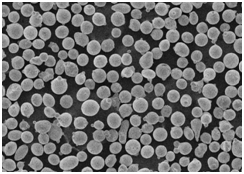
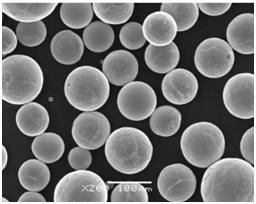
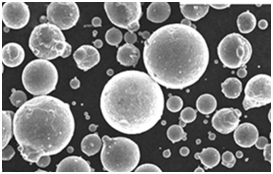
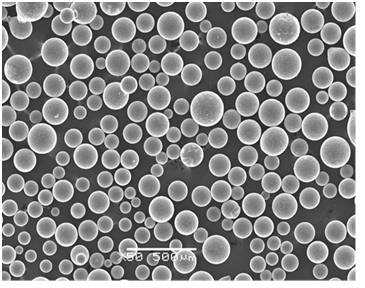

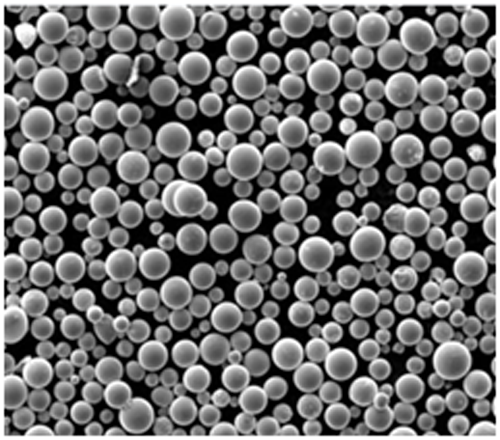
Specific Metal Powder Models for Forging
When it comes to forging, the choice of metal powder is crucial. Here are ten specific metal powder models that are widely used in the industry:
- AISI 1045 Steel Powder
- Description: A medium carbon steel that offers good machinability and weldability. It is widely used for parts that require strength and wear resistance.
- Applications: Ideal for automotive components, machinery parts, and gears.
- AISI 1060 Steel Powder
- Description: A high-carbon steel known for its hardness and ability to hold a sharp edge. It’s often used in applications requiring a combination of strength and toughness.
- Applications: Used for making knives, blades, and high-strength tools.
- AISI 4140 Alloy Steel Powder
- Description: A chromium-molybdenum alloy steel known for its excellent hardenability and strength. It is commonly used in high-stress environments.
- Applications: Ideal for crankshafts, gears, and heavy-duty axles.
- AISI 4340 Alloy Steel Powder
- Description: A nickel-chromium-molybdenum alloy steel that provides a good balance of strength, toughness, and wear resistance.
- Applications: Commonly used in aerospace components and heavy machinery parts.
- 304L Stainless Steel Powder
- Description: An austenitic stainless steel with lower carbon content, offering excellent corrosion resistance and good weldability.
- Applications: Used in medical devices, food processing equipment, and marine applications.
- 316L Stainless Steel Powder
- Description: Known for its superior corrosion resistance, particularly against chlorides, making it suitable for marine and chemical processing environments.
- Applications: Used in chemical plants, marine equipment, and surgical implants.
- Ti-6Al-4V Titanium Alloy Powder
- Description: A widely used titanium alloy known for its high strength, low weight, and excellent corrosion resistance.
- Applications: Extensively used in aerospace components, medical implants, and high-performance automotive parts.
- Ti-10V-2Fe-3Al Titanium Alloy Powder
- Description: Offers a unique combination of high strength, toughness, and workability, making it ideal for complex forging applications.
- Applications: Used in aerospace components and structural applications where weight reduction is critical.
- 2024 Aluminum Alloy Powder
- Description: Known for its high strength-to-weight ratio, this aluminum alloy is a favorite in the aerospace industry.
- Applications: Used in aircraft structures, automotive parts, and high-performance sports equipment.
- 6061 Aluminum Alloy Powder
- Description: A versatile aluminum alloy known for its good mechanical properties and corrosion resistance.
- Applications: Commonly used in structural applications, marine equipment, and automotive parts.
Applications of Forging Grade Material
Forging grade materials are used in a variety of industries due to their superior mechanical properties. The table below outlines some of the key applications of these materials.
| Industry | Applications | Preferred Materials |
|---|---|---|
| Automotive | Engine components, gears, crankshafts | AISI 4140, 4340 Alloy Steel, 6061 Aluminum Alloy |
| Aerospace | Landing gear, turbine blades, structural parts | Ti-6Al-4V, Ti-10V-2Fe-3Al, 2024 Aluminum Alloy |
| Medical | Surgical instruments, implants | 304L Stainless Steel, Ti-6Al-4V |
| Oil & Gas | Valves, flanges, fittings | 316L Stainless Steel, AISI 4340 Alloy Steel |
| Construction | Structural beams, fasteners | AISI 1045 Steel, 6061 Aluminum Alloy |
Specifications, Sizes, Grades, and Standards
In forging, the specific requirements for material properties, sizes, and standards can vary widely based on the application. Here’s a comprehensive look at the specifications, sizes, and grades for different forging materials, along with relevant industry standards.
Forging Material Specifications
The specifications of forging materials are defined by several key attributes, including mechanical properties, dimensions, and compliance with industry standards.
| Material Type | Standard | Mechanical Properties | Typical Sizes | Grades |
|---|---|---|---|---|
| Carbon Steel | ASTM A105 | Yield Strength: 250 MPa, Tensile Strength: 450 MPa | Bars: 10mm – 100mm diameter, Plates: Up to 1000mm thick | AISI 1045, AISI 1060 |
| Alloy Steel | ASTM A322 | Yield Strength: 550 MPa, Tensile Strength: 750 MPa | Bars: 20mm – 200mm diameter, Plates: Up to 1500mm thick | AISI 4140, AISI 4340 |
| Stainless Steel | ASTM A276 | Yield Strength: 210 MPa, Tensile Strength: 520 MPa | Bars: 10mm – 150mm diameter, Plates: Up to 1000mm thick | 304L, 316L |
| Titanium Alloy | ASTM B265 | Yield Strength: 880 MPa, Tensile Strength: 950 MPa | Bars: 6mm – 50mm diameter, Plates: Up to 50mm thick | Ti-6Al-4V, Ti-10V-2Fe-3Al |
| Aluminum Alloy | ASTM B211 | Yield Strength: 310 MPa, Tensile Strength: 470 MPa | Bars: 10mm – 150mm diameter, Plates: Up to 1000mm thick | 2024, 6061 |
Applications and Use Cases
Different forging materials are used for various applications based on their mechanical properties and specific requirements.
| Material | Application | Advantages | Limitations |
|---|---|---|---|
| AISI 1045 Carbon Steel | Automotive components, machinery parts | Good balance of strength and machinability | Limited corrosion resistance |
| AISI 4140 Alloy Steel | Crankshafts, heavy-duty axles | High strength and wear resistance | Requires heat treatment for optimal performance |
| 304L Stainless Steel | Medical devices, food processing | Excellent corrosion resistance, good weldability | Lower strength compared to some alloys |
| Ti-6Al-4V Titanium Alloy | Aerospace components, medical implants | High strength-to-weight ratio, excellent corrosion resistance | High cost, difficult to machine |
| 6061 Aluminum Alloy | Aircraft structures, marine equipment | Lightweight, good corrosion resistance, versatile | Lower strength compared to other alloys |
Suppliers and Pricing Details
The cost and availability of forging grade materials can vary significantly based on supplier, order volume, and market conditions. Below are some typical suppliers and pricing details for forging materials:
| Material | Supplier | Price Range (per kg) | Supplier Details |
|---|---|---|---|
| AISI 1045 Carbon Steel | Metal Supermarkets | $1.50 – $2.00 | Offers a wide range of steel products, including bars and plates. |
| AISI 4140 Alloy Steel | Online Metals | $3.00 – $4.50 | Specializes in various alloy steels for industrial applications. |
| 304L Stainless Steel | Stainless Supply | $5.00 – $7.00 | Provides stainless steel in various forms, including bars and sheets. |
| Ti-6Al-4V Titanium Alloy | Titanium Industries Inc. | $20.00 – $30.00 | Known for high-quality titanium products for aerospace and medical uses. |
| 6061 Aluminum Alloy | Aluminum Distributing Inc. | $2.50 – $4.00 | Supplies a range of aluminum alloys for various applications. |
Comparing Pros and Cons of Forging Materials
Understanding the advantages and limitations of each forging material helps in selecting the most suitable option for a given application. Here’s a comparative look at some of the popular materials:
| Material | Advantages | Disadvantages |
|---|---|---|
| AISI 1045 Carbon Steel | Strong, cost-effective, good machinability | Poor corrosion resistance |
| AISI 4140 Alloy Steel | High strength, good wear resistance | Expensive, requires heat treatment |
| 304L Stainless Steel | Excellent corrosion resistance, weldable | Lower strength compared to some alloys |
| Ti-6Al-4V Titanium Alloy | Very high strength-to-weight ratio, corrosion-resistant | High cost, difficult to machine |
| 6061 Aluminum Alloy | Lightweight, good corrosion resistance | Lower strength compared to other alloys |
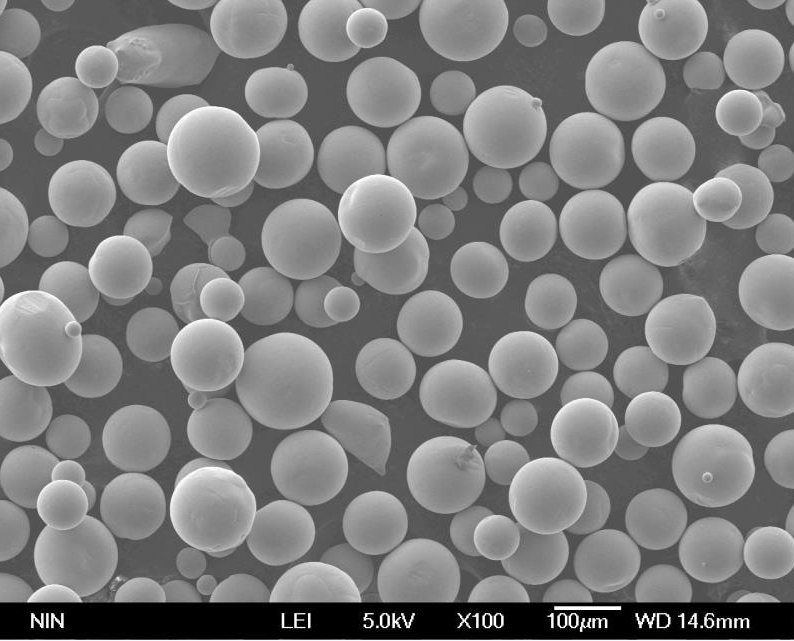
FAQ
Q1: What factors should be considered when choosing a forging grade material?
When selecting a forging grade material, consider factors such as the material’s strength, toughness, ductility, corrosion resistance, and the specific requirements of the application. The environment in which the material will be used and the type of stress it will experience are also crucial.
Q2: How does forging affect the properties of the material?
Forging improves the material’s grain structure, resulting in enhanced mechanical properties such as strength and toughness. The process can also improve the material’s resistance to fatigue and impact.
Q3: What is the difference between carbon steel and alloy steel in forging?
Carbon steel primarily contains iron and carbon, with no additional alloying elements. Alloy steel includes elements like chromium, molybdenum, and vanadium, which enhance specific properties such as hardenability, strength, and wear resistance.
Q4: Why is titanium alloy more expensive compared to other forging materials?
Titanium alloys are more expensive due to the high cost of raw titanium and the complex processing required to manufacture these alloys. However, their superior strength-to-weight ratio and corrosion resistance make them valuable for high-performance applications.
Q5: Can aluminum alloys be used in high-stress applications?
While aluminum alloys like 2024 and 6061 are strong and lightweight, they are generally used in less demanding applications compared to steels and titanium alloys. They are suitable for aerospace and automotive applications where weight reduction is critical.
